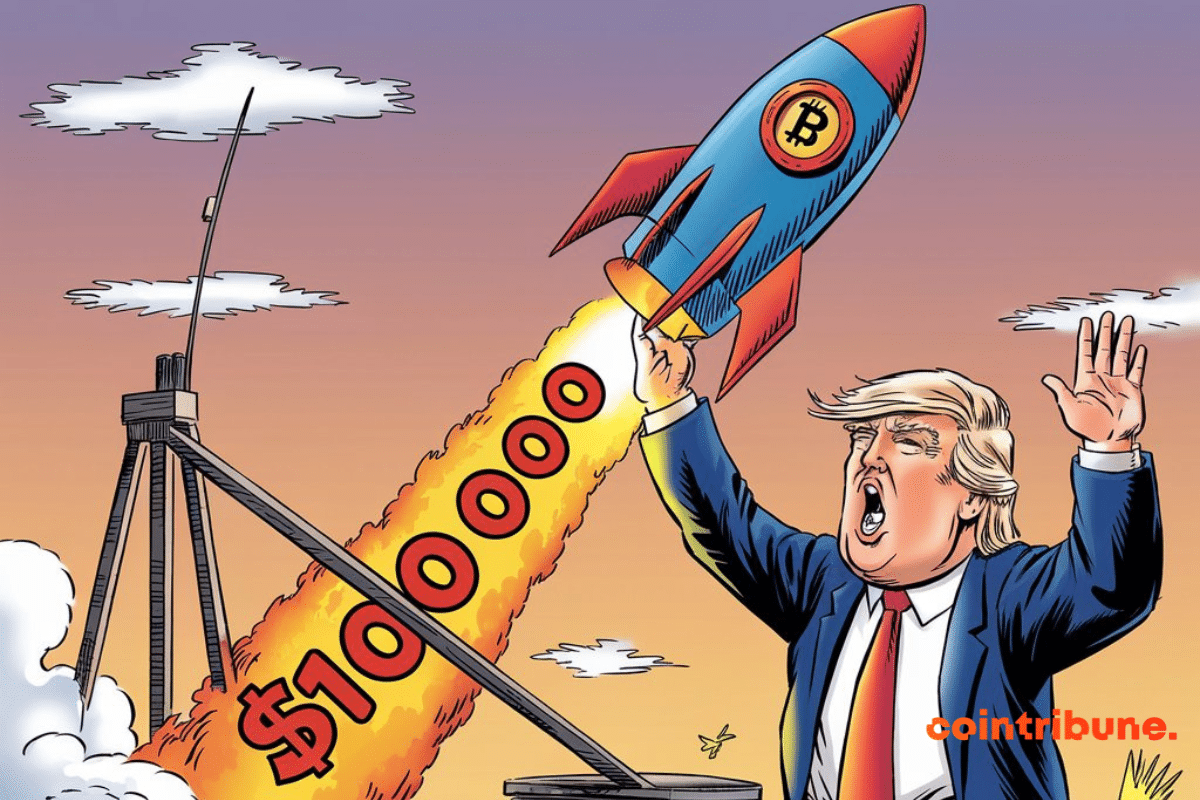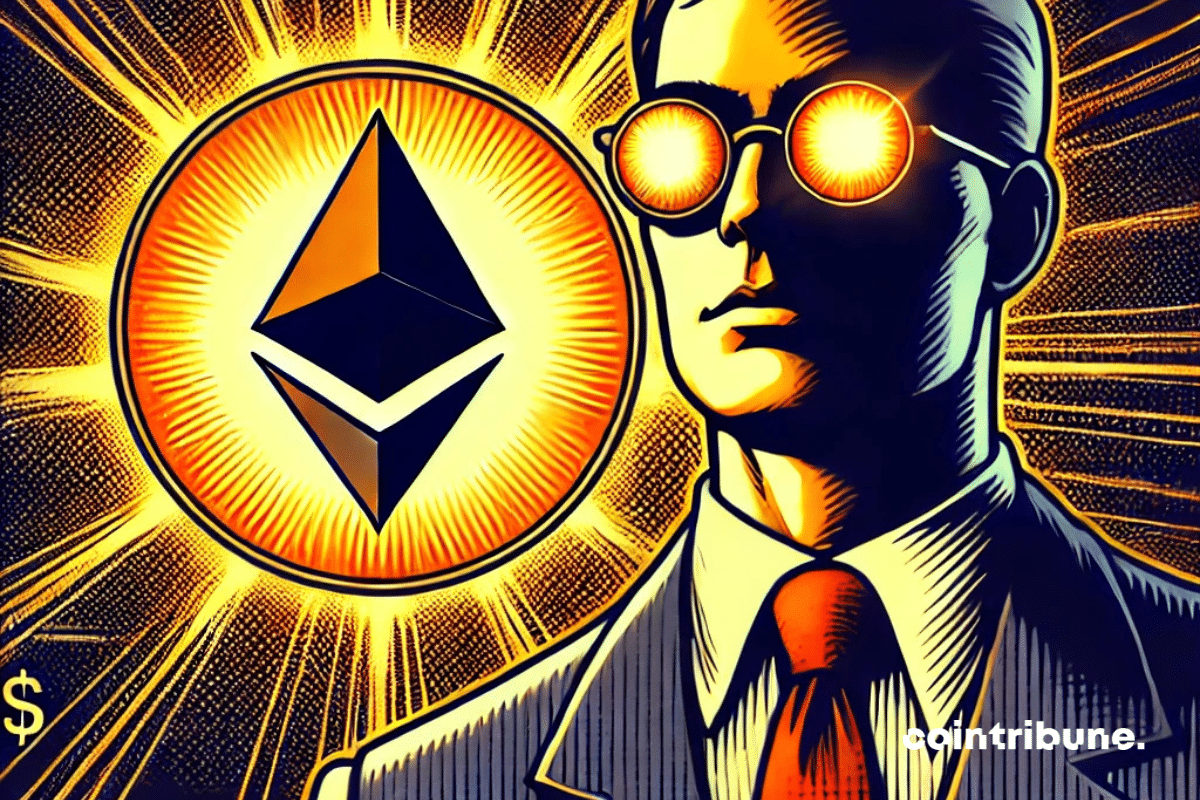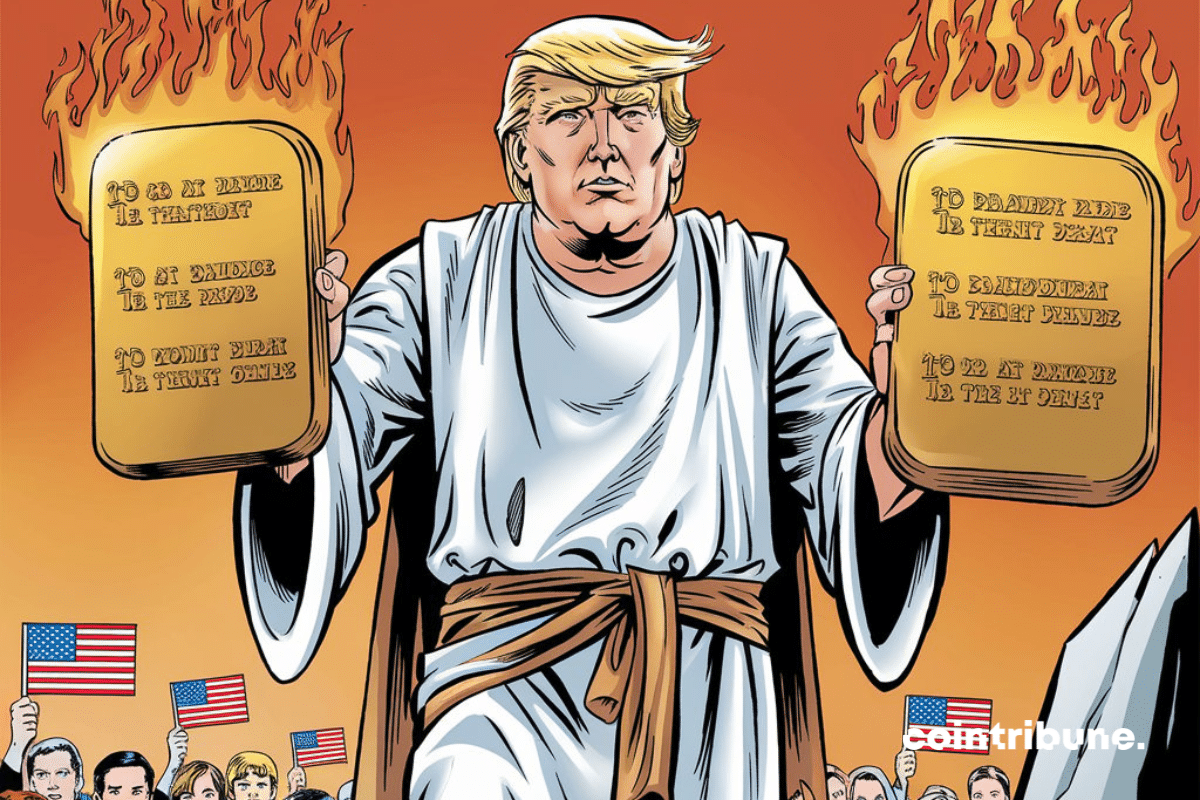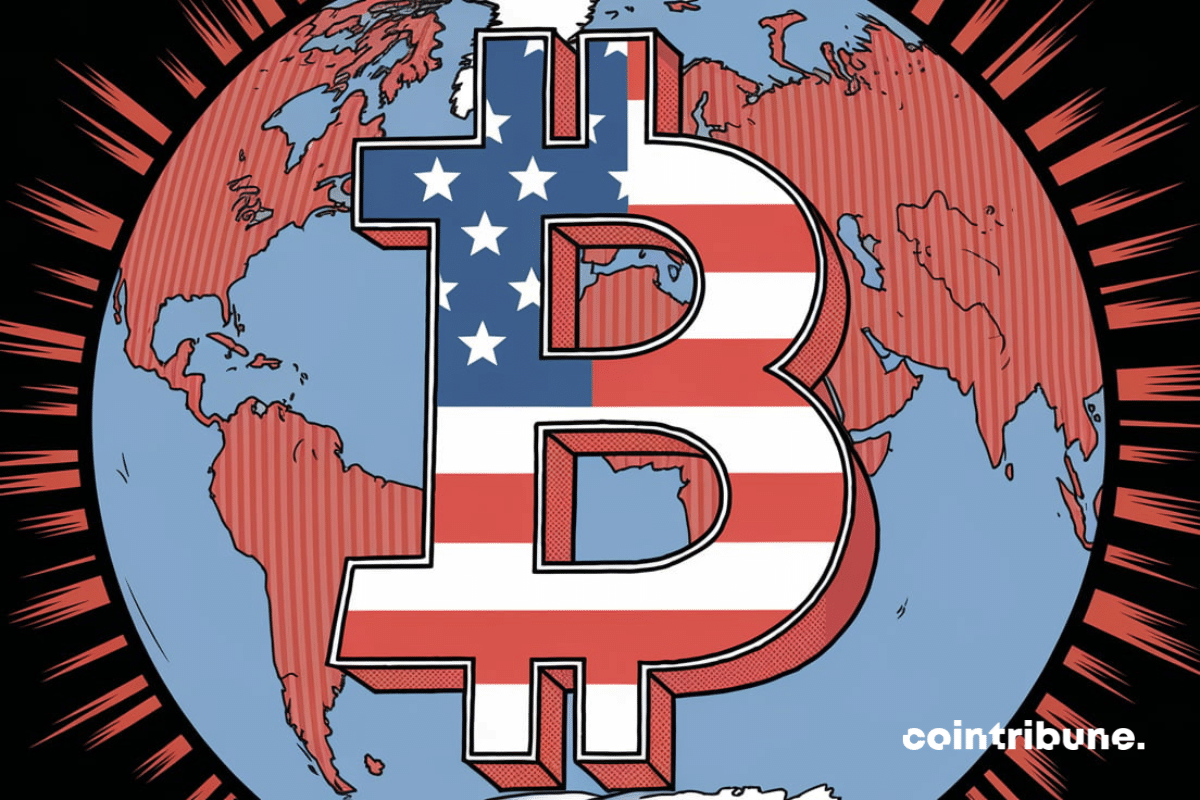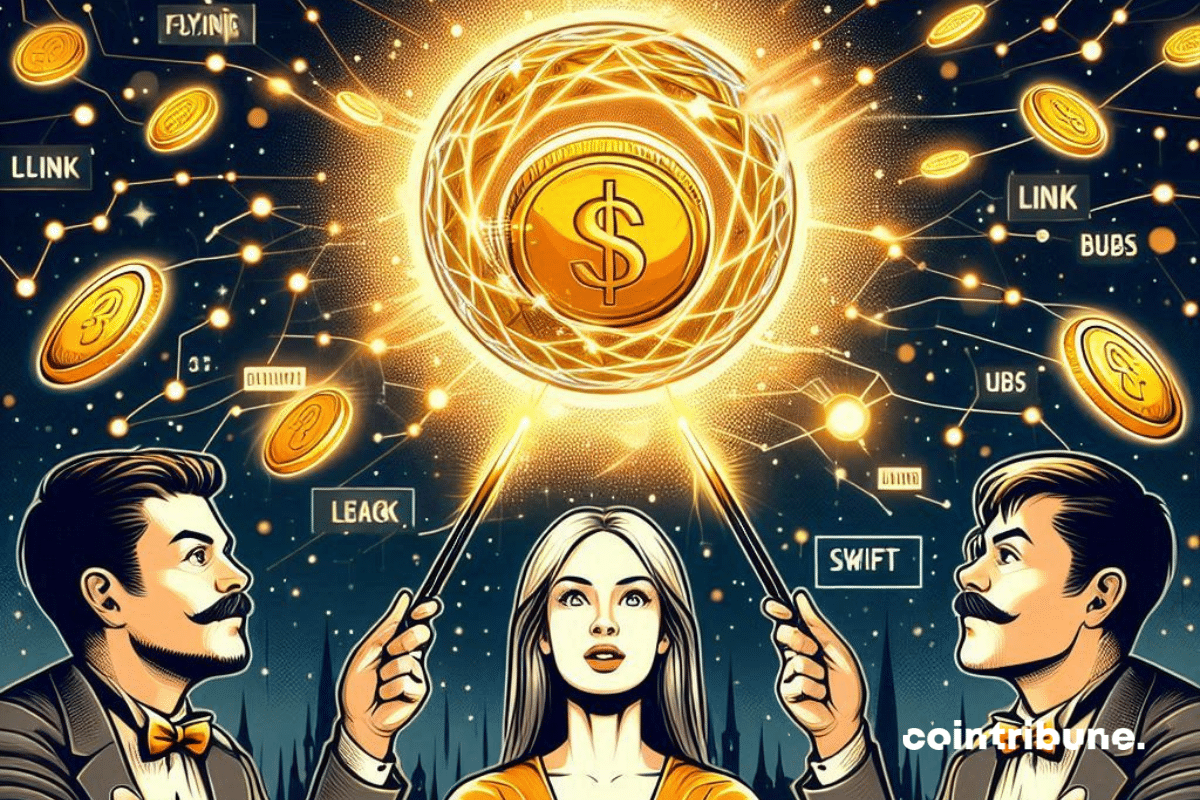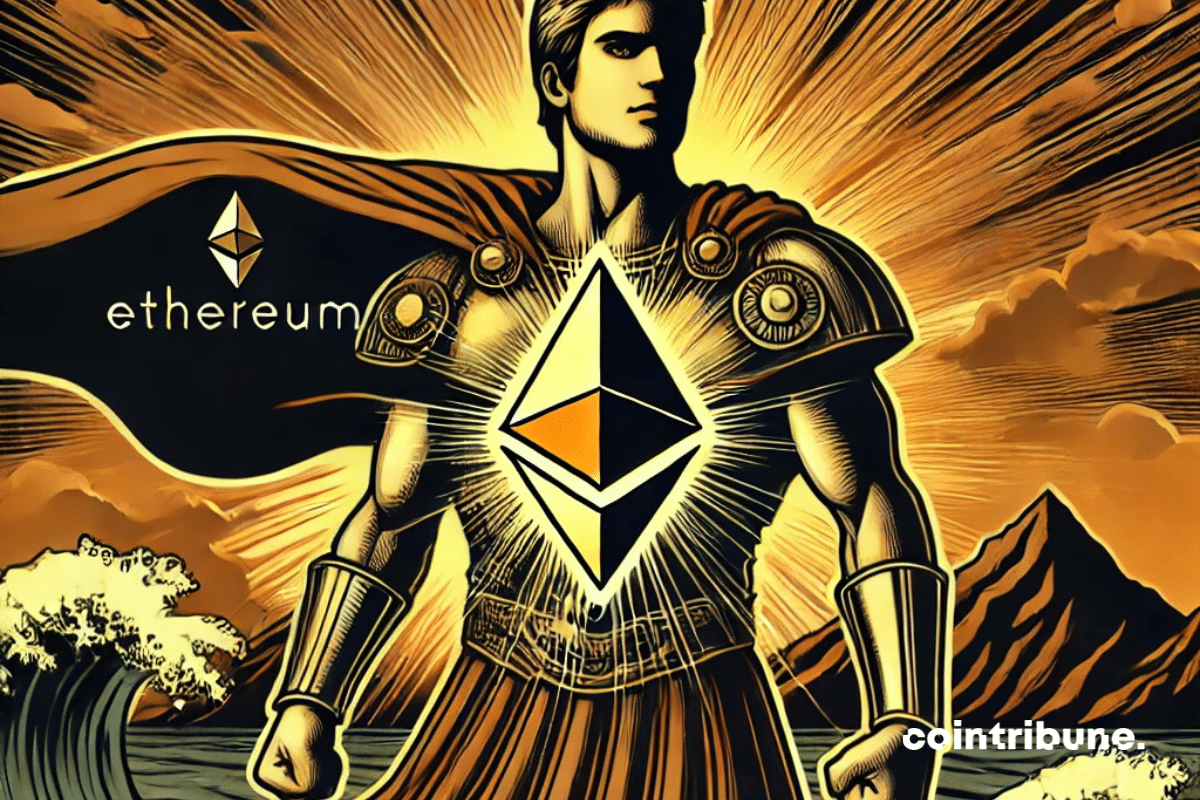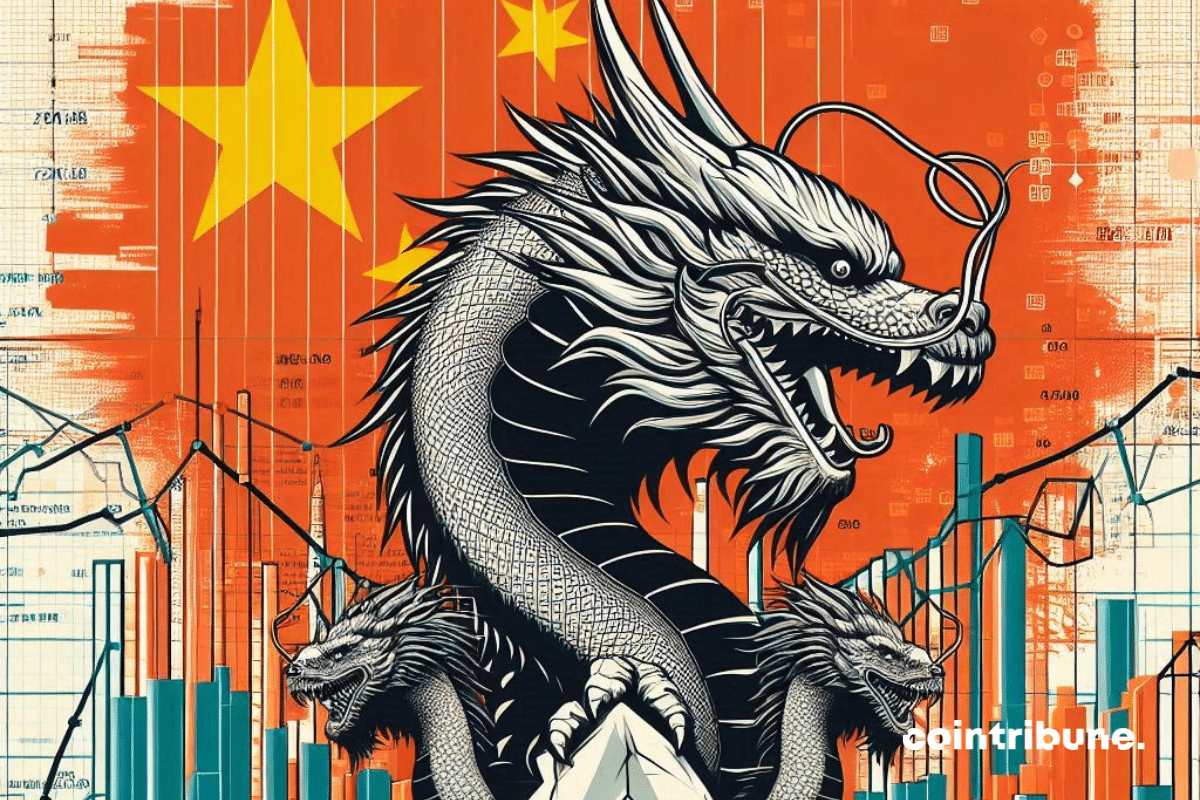As the price of Bitcoin reaches historic highs, having nearly touched 77,000 dollars yesterday, Friday, November 8, 2024, investors are faced with a critical question: is this rapid rise supported by real value, or is the market already hitting its limits? In a price discovery phase where traditional benchmarks seem to dissolve, analyses on on-chain metrics allow for a better understanding of the underlying potential of the most emblematic cryptocurrency. Five key indicators show that, despite this peak, Bitcoin remains fundamentally undervalued.
Finance News
Trump at the helm and here comes Bitcoin sparking: BlackRock scoops up billions, everything is rolling for the ETF!
Donald Trump's election to a second term as President of the United States could redefine the balance of power between Europe and its traditional ally across the Atlantic. In the face of this political upheaval, European leaders are confronted with critical questions about the future of their security, their strategic autonomy, and their economic partnership with the United States. As Europe is already weakened by internal tensions, Trump's return rekindles fears of an American disengagement in defense matters, as well as the threat of a trade war.
Trump at the helm and here comes Bitcoin sparking: BlackRock scoops up the billions, everything is going smoothly for the ETF!
The storm may be brewing for Bitcoin. This time, it is not the result of the usual market fluctuations, but of an analysis anticipating a drop that could shake investor confidence. As Bitcoin flirts with a new historical peak around $75,000, respected analyst Benjamin Cowen warns of a possible substantial drop in price. According to him, a reversal could take shape in early December, coinciding with the release of the U.S. employment report.
The relations between the two largest global economic powers, the United States and China, are once again at the heart of trade tensions. Barely elected, Donald Trump is reinforcing his intentions to pursue a no-holds-barred protectionist policy, seeking to impose record tariffs on Chinese imports. This approach echoes his first term, where heavy tariffs created a precedent in the Sino-American trade war. But this time, in a post-pandemic context where the global economy is still fragile, the repercussions could prove to be more significant. While Beijing advocates for dialogue, the world is bracing for a new phase of commercial confrontation with potentially global effects.
Trump president? Bitcoin rejoices, traders salivate. Digital gold could well soar, and Wall Street implores it!
Donald Trump's return to the White House is not limited to classic political issues. For the crypto industry, his election could redefine the contours of financial regulation, particularly for financial products linked to Ether (ETH), the second largest cryptocurrency by market capitalization. Indeed, the prospect of an ETF based on staked Ether could represent a decisive step for the sector. Thus, some analysts, like Edward Wilson from Nansen, believe that such a product could diversify investment options and also strengthen Ether's position as a strategic asset. This scenario, although conditioned by the political context, could change the dynamics of the crypto market in the United States and open unprecedented opportunities for investors.
After experiencing a sharp decline, NEAR has stabilized by demonstrating increasing buyer interest. Let’s examine the future prospects for NEAR together. Situation of the NEAR Price After dropping from $8.4 to $3, the price of NEAR rebounded to reach a resistance zone around $5.2. The crypto then suffered selling pressure,…
The return of Donald Trump to the presidency of the United States after his victory in the election on November 5 raises serious concerns well beyond American borders. Indeed, during a recent address in Lyon, Villeroy de Galhau did not mince his words. For him, "this new Trump administration would increase the risks to the global economy." This statement serves as a reminder to Europeans of the urgency to strengthen their economic resilience and to elevate their autonomy in the face of an increasingly protectionist American model.
In the unforgiving world of decentralized predictive markets, an extraordinary bettor known by the pseudonym "Theo4" has just made history with a profit of over 20 million dollars from betting on Donald Trump's victory in the 2024 U.S. presidential election. This spectacular gain, which draws attention to Polymarket, a decentralized predictive platform, reveals the magnitude of the bets and the sums at stake when crypto meets politics.
New mandate for Trump: an explosive cocktail of a strong economy, with frantic drilling and impactful tariffs. The party begins!
Donald Trump's victory will finally give bitcoin its due recognition. Here are the top 4 good news to come.
While Ethereum is in a consolidation phase, Bitcoin’s ATH triggers a buying rebound on the crypto. Let’s examine the future outlook for ETH together. Situation of Ethereum (ETH) price After a drop of nearly 40% from the $3,600 mark, Ethereum has sparked renewed buyer interest, allowing it to enter a…
Could Microsoft find itself in the crosshairs of its own shareholders for not having invested in Bitcoin? Current events bring this question to light as the tech giant faces pressure ahead of a crucial vote in December, orchestrated by the National Center for Public Policy Research (NCPPR). At stake is a proposal aimed at officially assessing the opportunity to invest in Bitcoin, an asset that has become indispensable in the global economic landscape. As tech giants increasingly turn to cryptocurrencies, this situation places Microsoft at a strategic crossroads that could influence its relationship with shareholders and impact its reputation.
The Swift and UBS giants, armed with Chainlink, attempted a blockchain twist to make tokenized finance dance.
France's budget deficit, now reaching 173.78 billion euros, has become a critical issue as it highlights the growing challenges the country faces in maintaining its financial commitments. With the end of the Covid-19 pandemic and the support measures, efforts to restore public finances seem to have encountered major obstacles. This budget gap exceeds forecasts and demands ambitious but controversial revisions. In this context, the government is striving to convince both European institutions and internal political actors of the viability of its austerity plan to avoid a lasting decline in state finances.
Wall Street shows a moderate upward trend this Tuesday, as the United States holds its breath for the midterm elections that could reshape the political and economic landscape of the country.
In a new escalation of international trade tensions, China has officially filed a complaint against the European Union with the World Trade Organization (WTO). This action follows the EU's decision to impose significant tariffs, ranging from 8% to 35%, on electric vehicles imported from China. According to the European Union, these taxes aim to correct what is deemed unfair competition due to Chinese state subsidies. In response to this measure, China retaliates and denounces an infringement on free trade principles. This conflict arises as both economic powers attempt to position themselves as global leaders in ecological transition and technological innovation.
Hamster Kombat loses 86% of its active users. Discover the reasons behind the rapid decline of a promising crypto game!
After approaching its ATH, Bitcoin experienced a decline that brought its price below the $68,000 mark. Let’s examine the evolving outlook for BTC. Situation of Bitcoin’s Price (BTC) After surpassing $70,000, Bitcoin continued its expansion. It advanced further, narrowly missing its all-time high by just $173. Indeed, the leading cryptocurrency…
Eleven years ago, a nineteen-year-old young developer named Vitalik Buterin published a document that would shake the foundations of blockchain technology. This "White Paper" of Ethereum, which first appeared in November 2013, laid the groundwork for a new era of finance and decentralization. Much more than just an extension of Bitcoin, Ethereum proposed an innovative vision: a programmable ecosystem that allows autonomous applications to operate without intermediaries. Today, as this document celebrates its 11th anniversary, it is crucial to reflect on the colossal impact of this initiative, its successes, and the challenges that still lie ahead in a constantly evolving sector.
Trump or not, the Chinese are working to save the economic structure... with billions flowing without brakes!
A feared technical indicator has emerged on the weekly charts: the "Gravestone Doji." This pattern, often associated with a trend reversal, could signal a turbulent phase for the market. The interest in this cross-shaped formation without bullish anchoring is particularly intense as investors had hoped to see Bitcoin break the symbolic barrier of $74,000. Instead, the leading cryptocurrency has retreated below $67,000, shaking the convictions of the most optimistic.
The great tide of "whales" is suspended! The giants of Bitcoin are waiting, monitoring the market like a cat watching a mouse.
Amid revolutionary announcements, technological developments, and regulatory upheavals, the crypto ecosystem continues to prove that it is both a territory of limitless innovations and a battleground of regulatory and economic conflicts. Here is a summary of the most notable news from the past week surrounding Bitcoin, Ethereum, Binance, Solana, and Ripple.
The BRICS have just completed their summit in Kazan, in an explosive geopolitical context. Between the war in Ukraine, conflict in the Middle East, and the American elections, the BRICS are increasingly establishing themselves as an alternative to America!
As the fight against climate change is at the heart of global concerns, some governments are considering banning Bitcoin mining, an energy-intensive process often criticized for its environmental impact. However, a new study conducted by the Exponential Science research group reveals a paradox that may surprise more than one lawmaker: banning Bitcoin mining could worsen carbon emissions, thus countering climate goals. This study, titled "The Unexpected Carbon Consequences of Bitcoin Mining Bans: A Paradox in Environmental Policy," sheds further light on the potential displacement effects caused by these bans.
After a dizzying rally that sparked investors' optimism, Bitcoin appears to be wobbling under increasing downward pressure. Indeed, with the recent achievement of major resistance levels, the flagship cryptocurrency is now exposed to a significant correction risk, with a key threshold around $65,000 that could determine the direction of its short-term trajectory.
Sheetz customers will soon pay for their coffee with Bitcoin! Flexa ensures a hassle-free checkout.





